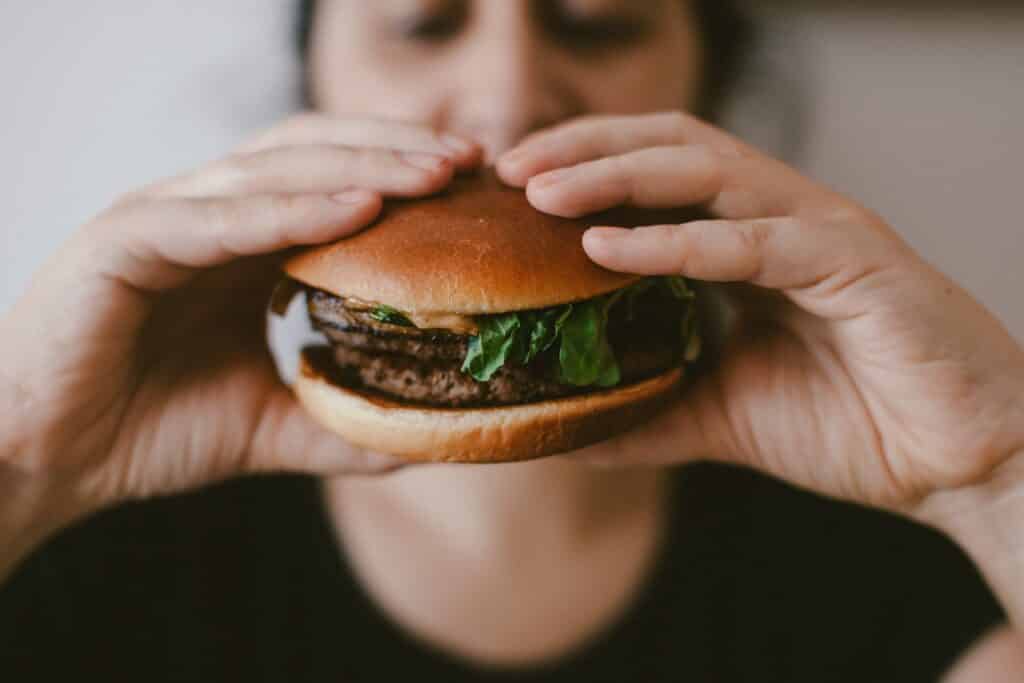The correlation between eating disorders and addiction has been studied for many decades. The curiosity stems from the obvious: if one engages in unhealthy choices when it comes to substances, why would that not apply to other areas of one’s life? Eating disorders and addiction are frequently co-occurring. Particular personality traits, such as impulsiveness, have been connected to both eating disorders and alcohol/drug abuse.
Research has also demonstrated that there are several similarities between the physiological conditions and mechanisms of addictive conditions, such as eating disorders and alcoholism or substance abuse. A commonality between eating disorders and addiction is that the addiction is inadvertently created into an even stronger form regardless of the health consequences a man or woman may be struggling with.
Need help getting addiction treatment?
Despite severe medical complications, it is difficult for individuals struggling with addictions to give up their addiction, as in the case of anorexia, alcoholism or substance abuse.
Common Eating Disorders
We all rely on food for the nourishment of our bodies. For some, eating becomes a way to feed their minds. In extreme cases, food is used as a way to satisfy deep emotional needs. When the emotional need for food surpasses the body’s natural balance an eating disorder is present. There are many different types of eating disorders, as defined by the Eating Disorder Foundation:
- Anorexia: Self-imposed starvation characterizes this eating disorder. Those with anorexia don’t eat regular meals on a regular schedule. Instead, they skip meals altogether, or they eat only foods they consider to be low in calories, such as popcorn, celery, or rice cakes.
- Bulimia: Those with this disorder use purging in order to limit weight. They might use vomiting, laxatives, or both to ensure that the calories in food don’t make their way onto their bodies.
- Binge eating: Uncontrolled eating followed by uncontrolled purging characterizes this condition. People with this disorder might eat in a sort of trance, stopping only when they cannot eat anymore. Purging is sometimes seen as a necessity, in order to reduce the pain that comes with overeating.
- Compulsive eating: People with this disorder might also eat until they are uncomfortably full, but they might not purge the excess food. Obesity is a common part of this disorder.
These disorders can cause have serious detrimental effects, both mentally and physically. In extreme cases, it can become life-threatening. Obviously, no one would consciously choose this path. When the balance is off, a person who consumes food beyond the norms or in abnormal ways, a co-occurring disorder is often diagnosed. Having a co-occurring disorder is an important factor if substance abuse is also an issue.
According to ANRED, those psychological factors play a role. People with eating disorders often tend to be perfectionists. They don’t see how their bodies can ever be anything but perfect, and they blame themselves when they can’t achieve the results they’re looking for. These thoughts can also carry over into other aspects of a person’s life. Personal relationships, school, careers, and other and social activities can all be viewed through the prism of a perfectionist in a much different way than how normal people might view them.

Eating Disorders and Addiction
It’s not a very far journey from frustration to substance abuse. For people who feel inadequate, persecuted, defeated, or simply unable to cope with life’s daily challenges, substance or drug abuse seems like an easy out. For these people, the euphoria or escape provided by substances is alluring beyond all reason or any threat of consequence. It stands to reason then, that anything that fuels one’s desire for a quick mood boost might turn to eating. Drugs can also come with special benefits that can appeal to those with eating disorders.
For example, research cited in Social Work Today suggests that some drugs can help to suppress the appetite, which could make living with anorexia just a little bit easier. These people are often desperately hungry and determined to do anything to keep from giving in to the need to eat. If drugs make signals of hunger seem to disappear, they could seem like useful tools to someone with anorexia.
Similarly, some substance abuse disorders seem to be a little easier to manage when people have existing eating disorder issues. For example, people who abuse alcohol often take in a great deal of the substance all at once, and they become profoundly drunk long before they intended to do so.
A bulimia habit could make this a little easier to handle, as people who have bulimia are well equipped with self-vomiting techniques. If these people binge on alcohol, they could simply vomit the drug back up and keep drinking. Alcohol could also be useful for those who have eating disorders associated with anxiety, according to research in The Seattle Times.
People who grow worried at the thought of even consuming a meal could feel as though a drink could relax them enough so they could eat. To them, alcohol is a useful tool that allows them to manage a part of their disorder that they simply can’t handle alone.
Given that there are a number of reasons people that eating disorders and addiction can be linked, it’s not surprising that many people who have eating disorders often have addictions. In fact, up to 35 percent of those who abuse drugs or alcohol had eating disorders, compared to 3 percent of the general population.
It’s possible that people with eating disorders think that their drug and alcohol habits are useful tools. The substances they take in make living with their disorders easier, or their underlying habits seem to make drugs and alcohol less dangerous. But drugs and alcohol can be insidious, changing brain chemistry in deep and drastic ways, while people who take in the substances simply don’t see the changes happening. That means a substance abuse issue could develop with incredible speed, even while the person thinks the drug or alcohol use is totally under control.

Getting Treatment for Eating Disorders and Addiction
Living with an eating disorder clearly isn’t easy. If people feel compelled to self-medicate. self-medicate with drugs and alcohol, it’s obvious that their disorders cause them a great deal of distress, and that they’re willing to do almost anything to make things better.
Thankfully, people who have eating disorders can and do get better with the right kind of help. For example, according to some research, long-term recovery rates for anorexia are as high as 76 percent, while short-term recovery rates for bulimia are as high as 70 percent.
With the right kind of therapy, provided at the right time, people can come to an understanding of the importance of good nutrition, and that can help them to eat in a more reasonable way.
But having a drug abuse or any form of addiction underlying an eating disorder can make the healing process a little more difficult. For example, people with an addiction issue often struggle with deep-set cravings for the drugs they once took on a regular basis. Their amended brain cells don’t seem to function well without the drugs, and those cells call out for drugs. The calls can grow stronger during times of stress.
People who are in recovery from an eating disorder might experience intense cravings for drugs during the moments at which they once used drugs. If they relied on alcohol to make eating dinner less stressful, they might have a desperate need for a drink when the sun begins to set.
If they used cocaine in the morning to keep hunger at bay all day, they might develop intense dreams about the drug that awakens them in the early hours of the day. Those who give in to these cravings may find their recovery from eating disorders is much more complicated. They might find it hard to:
- Pay attention during therapy sessions
- Do recovery-related homework
- Eat properly
- Attend support group meetings
Some drugs can also erode a sense of control and willpower, too, so people might find that they slide back into disordered eating after a relapse to drugs or alcohol, even if they’ve made great strides in recovery in the past. Since eating disorders and addiction are so closely related, experts often recommend dual diagnosis therapies. That is, experts suggest that people who have eating disorders get treatment for addiction at the same time. Unfortunately, that kind of comprehensive care can be hard to find.
Addiction and Eating Disorder Treatment in Orange County
Renaissance Recovery uses a holistic approach combined with evidence-based practices. We examine every aspect of every patient’s case and the development of a treatment plan that encompasses every component of their addiction, including co-occurring disorders. We work with treatment programs in the area to get them through the assessment and then into treatment and support programs that nurture them through every step of recovery. It’s not easy or fast, but the results are worth it.
If you would like to learn more about the overlap between eating disorders and addiction and are looking for eating disorder treatment in California or Florida, or a Florida rehab program, Renaissance Recovery is here to help you. Please give us a call today at 866.330.9449.



